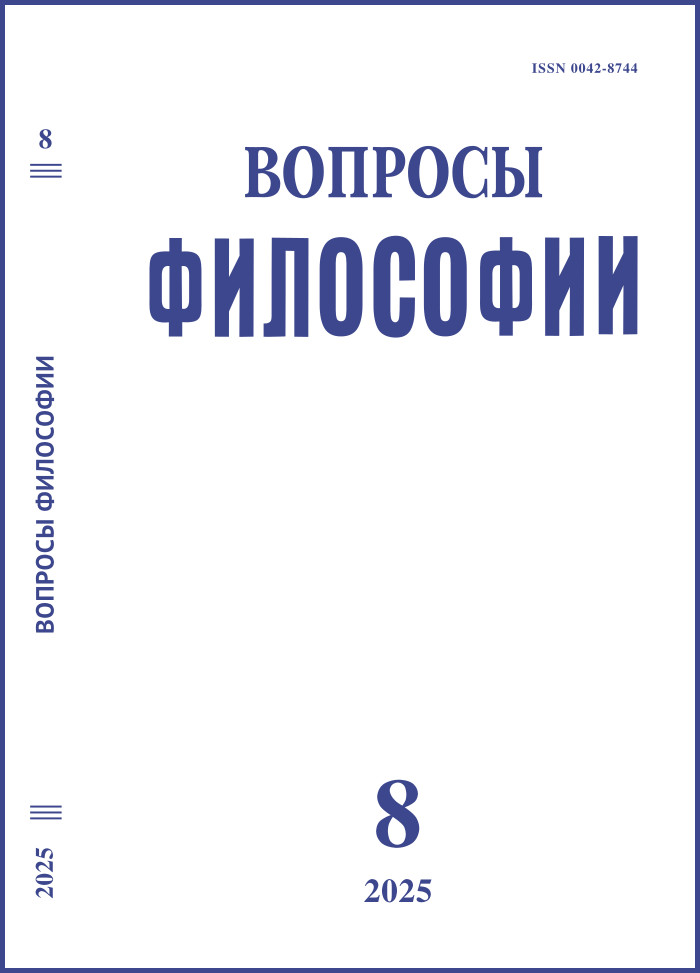Philosopher and Philosophy: V.V. Bibikhin
DOI:
https://doi.org/10.21146/0042-8744-2025-8-111-121Keywords:
philosophy, language, thought, meaning, translation, understanding, Heidegger, performance, radical environmentalism, eventAbstract
Over the past 20 years since the death of Vladimir Veniaminovich Bibikhin, the importance and relevance of his philosophical legacy has not only not decreased, but has become even more in demand. Last year, a memorial plaque appeared in Bezhetsk, the city where he was born, a large number of his lecture courses were published, Bibikhin readings have been held for several years, seminars, master classes, and round tables have been devoted to his work. On December 10, 2024, at the Institute of Philosophy of the Russian Academy of Sciences, a round table discussed the problems of translating “Being and Time”, the concept of law and the figure of the auditor in Bibikhin’s philosophy of law, factual life as a personal-not personal being: interpretation of the personality problem in the materials of Bibikhin’s seminar “Early Heidegger”. In connection with Bibikhin's philosophy, the problem of dissatisfaction with life and its connection with metaphysics was raised; Bibikhin’s explication of the early Heideggerian interpretation of logical categories and its philosophical significance. In the article now proposed, Bibikhin’s philosophy is presented as an “accepting understanding” that coincides with the essence of man. Understanding presupposes an appeal to the meaning of an initially sacred word that began “from time
immemorial”, therefore the philosopher’s thought in the implication of such a meaning is always colored by this sacredness. Bibikhin’s first book, The Language of Philosophy, where philosophy is presented as identical to language, set out the basic principles that he had thought out in advance.

